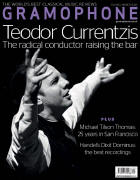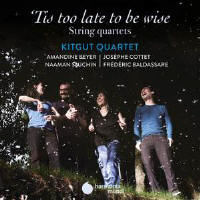Texte paru dans: / Appeared in: |
|
|
Outil de traduction (Très approximatif) |
|
|
Reviewer:
Lindsay Kemp Theatre tunes and viol fantasias by Purcell, Matthew Locke and John Blow with a Haydn quartet plonked in the middle – what’s going on here? In fact it’s the first in a four-part series of releases exploring the origins of the string quartet, each linking a Classical master with a particular country. ‘Beethoven and France’ is among the curious pairings to come, but at least the presence here of Haydn’s Op 71 No 2, written as it was for London in 1793, makes some sense in this context, even if its historical and developmental connections with four-part string-writing in 17th-century England appear to be more coincidental than meaningful. But hey, a CD doesn’t always have to be a history lesson, does it? And as the title hints with its quote from Dryden and Purcell’s King Arthur, hindsight doesn’t always tell us everything. Of more immediate interest is how the programme actually sounds, and the good news is that the playing of the newly formed Kitgut Quartet, using period instruments and led by Amandine Beyer, is full of freshness and life. Using violins for viol music may take away a little delicacy but it adds definition and an agile quickness of attack that these players make telling use of; Locke’s angular dances in particular acquire real athletic spring. Meanwhile the real violin-family music also benefits: Locke’s Curtain Tune from The Tempest brews up threateningly, Purcell’s Hornpipe and Timon of Athens Curtain Tune are full of flicks and kicks, and there is a swift but involvingly passionate performance of the famous and beautiful Chacony. A period performance of a Haydn quartet operates against a different set of comparisons, of course. This time softness of timbre is the principal gain, giving the music a gentle amiability and touching vulnerability not usually revealed by the fatter tone of modern strings. Some may well wish for a warmer, less whinnying violin sound in the slow movement, but there is plenty of interpretative energy and fun in the outer movements, making this Haydn the good company it should be. |
|




